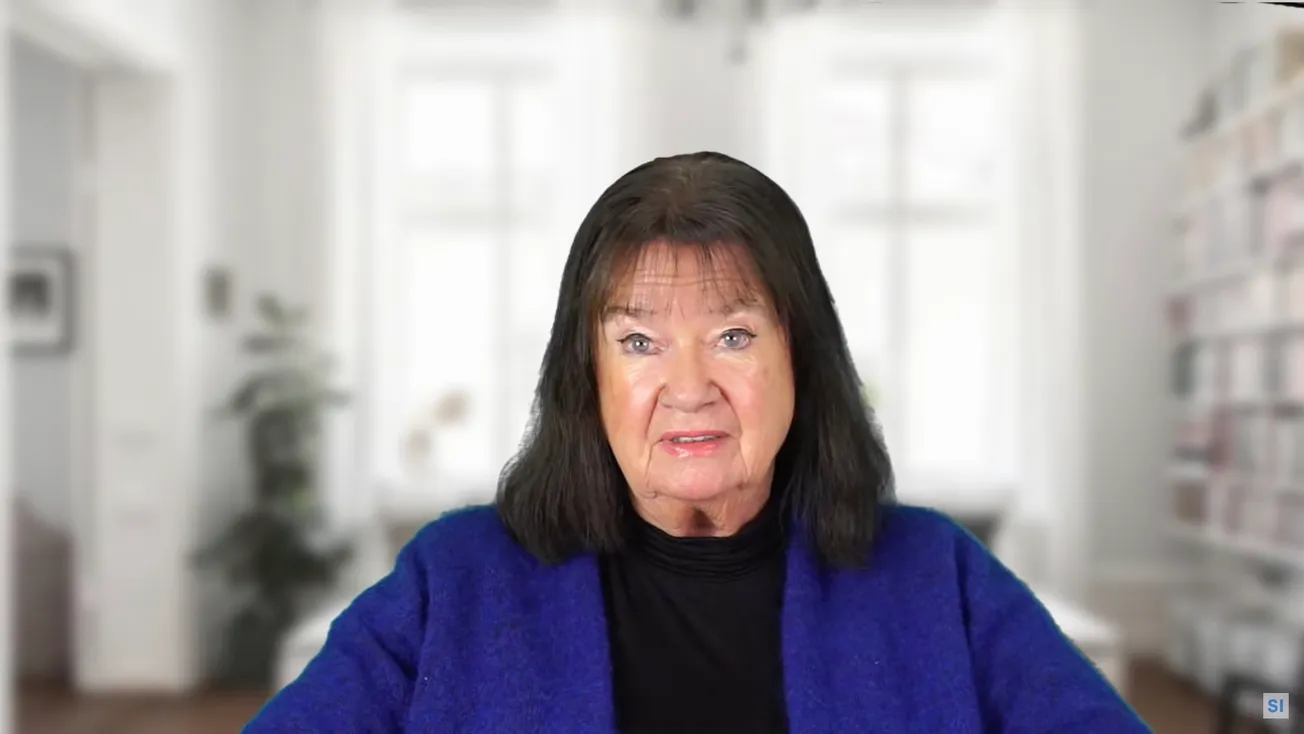“We are sitting on two regional crises which could lead to a global escalation” ending in a general world war, Helga Zepp-LaRouche warned listeners today on her weekly Dialogue webcast. “One is Ukraine; and the other is the Middle East. And I think one has to look at these two things together,” she stated, both to understand them and to solve their underlying cause.
“Concerning Ukraine,” Zepp-LaRouche reported, “the Ramstein meeting which was supposed to be addressed by Biden was postponed”—referring to the meeting of the Ukraine Defense Contact Group of nations that had been scheduled to meet on Ramstein air base in Germany on Oct. 12, at which the British and others had hoped to pressure President Biden to finally accede to launching NATO long-range missiles from Ukraine deep into Russian territory. President Putin has made it clear that such an attack could cause Russia to invoke its revised nuclear defense doctrine.
Although Biden cancelled his trip and the Ramstein meeting was postponed, it simply kicked the can down the road, possibly for an additional week to a scheduled NATO Defense Ministers meeting in Brussels, where the issue may again be taken up. But the central crisis remains: Ukraine is being defeated on the battlefield by Russia, and that has brought us to the point, Zepp-LaRouche reminded listeners, which former German Bundeswehr Chief of Staff Gen. Harald Kujat (ret.) “had warned about one year ago: that NATO will come to the point of decision of either having a negotiated solution, one which will be accepted by Russia … or go for an escalation.”
“I’m afraid,” she continued, “that we are sitting in the immediate vicinity of a decision to escalate which could lead, in the worst case, to a global nuclear war.”
The situation in Southwest Asia is arguably even closer to general warfare, with country after country going up in flames at the hands of Israel. Prime Minister Netanyahu is now chafing at the bit to attack Iran—either its oil fields and other vital infrastructure, or, if Biden agrees to a direct U.S. military role, Iran’s nuclear program.
This is truly “playing with fire,” as Russian Foreign Minister Sergey Lavrov warned gravely in an Oct. 7 Newsweek interview. In an unexpected development that same day, the Kremlin announced that President Putin would be meeting with President Masoud Pezeshkian of Iran on Friday, Oct. 11 in Turkmenistan—even though the two had already scheduled to meet less than two weeks later, at the Kazan BRICS summit Oct. 22-24.
Why the rush? Well-informed media and other sources report that the purpose of the earlier meeting may be to sign a major security and defense agreement between the two countries, which has been fully agreed to and was expected to be signed at Kazan. Will Israel—and its sponsors and enablers in London and Washington—get the message and re-think their plans to attack Iran full force? Or will they be willing to risk nuclear war in that theater as well?
EIR does not know the answer to that question.
But we do know what it will take to get Mankind on an entirely different trajectory, including replacing the bankrupt Wall Street/City of London financial system with a new development and security architecture serving the real needs of all nations.
This central policy issue was taken up in an extraordinary interview that EIR editorial board member Mike Billington conducted on Oct. 6, with the 99-year-old former Prime Minister of Malaysia and world elder statesman Dr. Mahathir bin Mohamad. With eloquence and lucidity, Dr. Mahathir noted: “It would seem that the Western alliance needs an enemy all the time…. The attitude is that the war [against Russia] would solve this problem, but war will not solve the problem. They are going to lead to bigger wars, to a Third World War. That is what I fear.”
The solution, Dr. Mahathir stated, is that a non-aligned policy must replace the East vs. West paradigm. “The world is still divided into two confronting blocs, the East and the West. And other countries feel that they are being pressured to join one or the other. But these countries do not want to be involved in the confrontation between the U.S. and China and Russia. That is why there is a need once again to think about non-alignment, which was what was proposed by Sukarno,” the president of Indonesia, who was one of the founders of the Non-Aligned Movement in 1955.
Mahathir continued: “We want to see a stable world where we can grow through trade with the whole world…. We don’t need any blocs East or West, but we need a world where everybody is equal.”
Important excerpts from Dr. Mahathir’s interview will be presented at the upcoming International Peace Coalition meeting #71, on Friday Oct. 11, to help shape the deliberation of the participants for a mobilization capable of pulling Mankind back from the brink of thermonuclear war—quickly.







